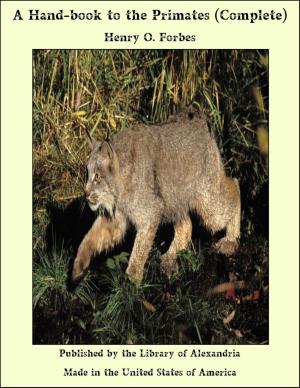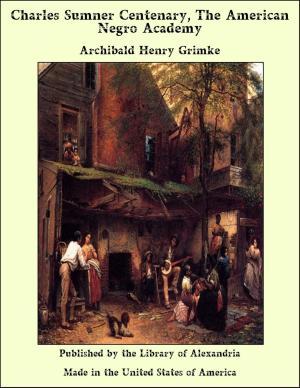Helbeck of Bannisdale (Complete)
Nonfiction, Religion & Spirituality, New Age, History, Fiction & Literature| Author: | Mrs. Humphry Ward | ISBN: | 9781465550033 |
| Publisher: | Library of Alexandria | Publication: | March 8, 2015 |
| Imprint: | Language: | English |
| Author: | Mrs. Humphry Ward |
| ISBN: | 9781465550033 |
| Publisher: | Library of Alexandria |
| Publication: | March 8, 2015 |
| Imprint: | |
| Language: | English |
Before him stretched the marsh lands of the Flent valley, a broad alluvial plain brought down by the rivers Flent and Greet on their way to the estuary and the sea. From the slight rising ground on which he stood, he could see the great peat mosses about the river-mouths, marked here and there by lines of weather-beaten trees, or by more solid dots of black which the eye of the inhabitant knew to be peat stacks. Beyond the mosses were level lines of greyish white, where the looping rivers passed into the sea—lines more luminous than the sky at this particular moment of a damp March afternoon, because of some otherwise invisible radiance, which, miles away, seemed to be shining upon the water, slipping down to it from behind a curtain of rainy cloud. Nearer by, on either side of the high road which cut the valley from east to west, were black and melancholy fields, half reclaimed from the peat moss, fields where the water stood in the furrows, or a plough driven deep and left, showed the nature of the heavy waterlogged earth, and the farmer's despair of dealing with it, till the drying winds should come. Some of it, however, had long before been reclaimed for pasture, so that strips of sodden green broke up, here and there, the long stretches of purple black. In the great dykes or drains to which the pastures were due, the water, swollen with recent rain, could be seen hurrying to join the rivers and the sea. The clouds overhead hurried like the dykes and the streams. A perpetual procession from the north-west swept inland from the sea, pouring from the dark distance of the upper valley, and blotting out the mountains that stood around its head.
Before him stretched the marsh lands of the Flent valley, a broad alluvial plain brought down by the rivers Flent and Greet on their way to the estuary and the sea. From the slight rising ground on which he stood, he could see the great peat mosses about the river-mouths, marked here and there by lines of weather-beaten trees, or by more solid dots of black which the eye of the inhabitant knew to be peat stacks. Beyond the mosses were level lines of greyish white, where the looping rivers passed into the sea—lines more luminous than the sky at this particular moment of a damp March afternoon, because of some otherwise invisible radiance, which, miles away, seemed to be shining upon the water, slipping down to it from behind a curtain of rainy cloud. Nearer by, on either side of the high road which cut the valley from east to west, were black and melancholy fields, half reclaimed from the peat moss, fields where the water stood in the furrows, or a plough driven deep and left, showed the nature of the heavy waterlogged earth, and the farmer's despair of dealing with it, till the drying winds should come. Some of it, however, had long before been reclaimed for pasture, so that strips of sodden green broke up, here and there, the long stretches of purple black. In the great dykes or drains to which the pastures were due, the water, swollen with recent rain, could be seen hurrying to join the rivers and the sea. The clouds overhead hurried like the dykes and the streams. A perpetual procession from the north-west swept inland from the sea, pouring from the dark distance of the upper valley, and blotting out the mountains that stood around its head.















